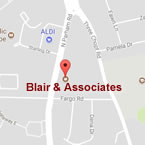Choosing an Executor … Being Chosen an Executor
March 2016
Choosing the executor of your estate is perhaps the single most important decision you will make to deal with the unknown future, provide peace-of-mind for your family and create an orderly transition of assets in the event of death or disability.
Likewise, being invited to serve as the executor of an estate initiates a weighty series of questions to be answered on the road to arrive at an informed decision. While it may be flattering to be asked, it may involve far more than you are willing or capable to undertake.
In this article, we’ll take a look at both sides of the executor issue. The objective is to identify a decision matrix for those seeking to determine the appropriate executor candidate to administer their estate … as well as “what to do” when asked to oblige as executor.
Of course, both those seeking to name an executor, as well as individuals requested to so serve, are urged to seek counsel and direction from competent accounting and legal professionals for conclusive guidance. This article is meant as a general discussion document and not to be construed as providing legal, accounting or tax advice.


Choosing an Executor
Competency, harmony and willingness to serve are the key ingredients to a successful choice of an executor. Let’s take a look at each.
Competency: Your choice of an executor is not in the category of a popularity contest, nor the ranking of a family member. Said another way, your executor will shoulder significant responsibilities on your behalf. Choices should never be made simply because an individual is a close friend or the oldest child. Your selection should reflect the individual’s capabilities and certainly never on the basis of hurting someone’s feelings.
Harmony: In some instances, it may be prudent to appoint two or more adults as joint executors. That said, there are at least a few circumstances to carefully consider. For example:
• Appointing two siblings with an adversarial relationship creates the potential for an explosive and protracted delay in settling your estate according to your wishes.
• Likewise, choosing two or more executors who have no history of successfully working together may harbor the fixings for a confrontational atmosphere that may lead to less than efficient management of your affairs.
If there is a need for co-executors and no clear choices of compatible individuals to fulfill those roles, you may appoint an entity such as a bank, trust company or a law firm that offers executor services.
Willingness: This element is closely tied to the above discussion of Competency. Assuming the executor candidate is competent, it is important to determine that person’s readiness to assume the required duties of the role he or she is expected to play. Depending on the complexity of the estate, it may be a far more overwhelming task than expected. Additionally, there are potential legal liabilities for negligent handling of the estate.
Of course, expertise does not have to be personally demonstrated in all aspects of “a life in the day of an executor”, as there is plenty of help available from a capable team of accounting, legal and investment professionals.
One further thought on the matter of willingness. Take a look at the following discussion of considerations to be pondered by the executor nominee.


Being Chosen an Executor
While it may be flattering to be asked, it may involve far more than you are willing or capable to undertake. It may also be in your “sweet spot” depending on your competencies and willingness to step up to the challenges of settling an estate.
Here are some questions to ask before accepting the honor.
• How complex is the estate?
• Does the estate include property in more than one state; a significant investment portfolio and controlling business interests?
• Are there any interpersonal conflicts known to be present among beneficiaries?
• Are there outstanding liens, lawsuits or other legal actions affecting the estate?
These and other questions that your competent advisors may recommend will offer a profile of what the challenges may look like.
As part of your due diligence, it’s valuable to review some of the duties that an executor performs. See if you’d be up to it, if asked.
• In the state of Virginia, you will be considered to be a fiduciary. How well do you deal with people-skills and finances?
• Identifies estate assets and location.
• Directs valuation of all assets to provide beneficiaries with information to determine tax basis for distributions and for estate tax purposes.
• Sets up checking account and pays estate bills.
• Maintains thorough record keeping.
• Oversees tax return preparation and tax planning issues
• Manages the distribution of assets to beneficiaries as dictated by the decedent’s will.
Now consider all of the above in the context of complexity of the estate, warring beneficiaries and outstanding legal issues. It may be a simple undertaking with a modest estate. It may prove daunting in an estate with multi-faceted intricacies. Remember, this will be a one-time, part-time job for an individual executor and may require a broad range of skills.


Again, if you choose to accept the position of executor, you may well take on the mantle of “quarterback” and enlist the aid of accounting, legal and investment professionals.
From the accounting side, we at Blair + Assoc stand ready to serve executors with both consultation as well as filing the following documents:
• Inventories
• Court accountings
• Final income tax returns for the deceased
• Estate tax returns
• Trust income tax returns.
One last thought: we work with a number of skilled estate professionals. If we can help with a referral … just ask.

